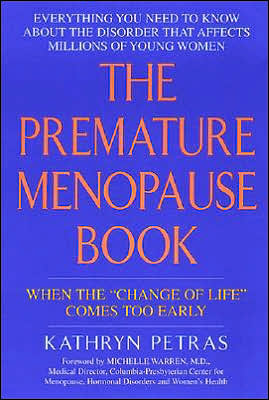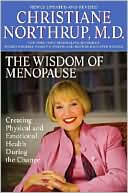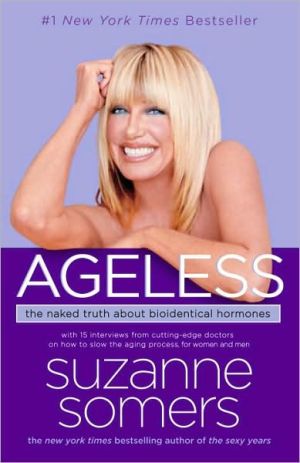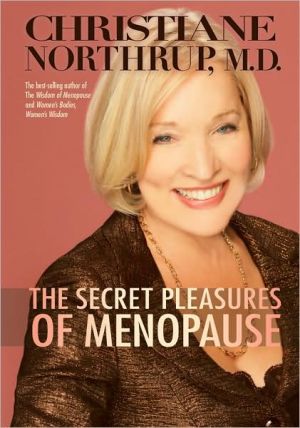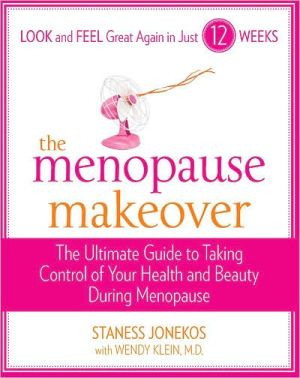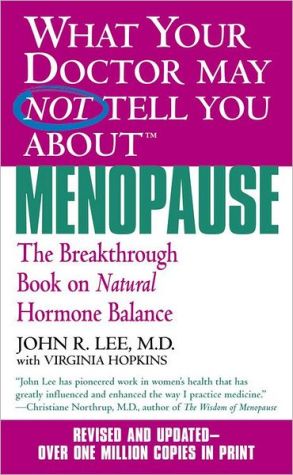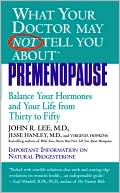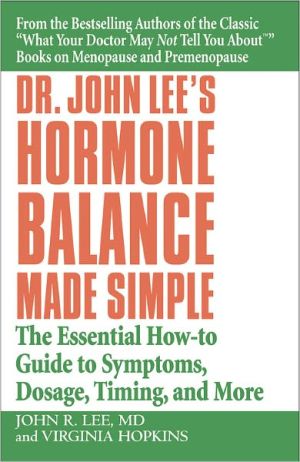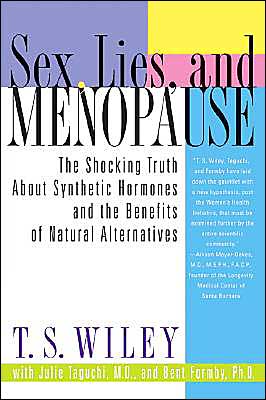Premature Menopause Book: When the Change of Life Comes Too Early
WHY NOW? WHY ME?\ Today, millions of women in their twenties and thirties, many of whom are just beginning to plan a family, are receiving the shocking news that their reproductive years are already over. They are in premature menopause — menopause years before its time. Whether due to an autoimmune disorder, surgery, chemotherapy, radiation, or the often undiagnosed condition known as Premature Ovarian Failure (POF), premature menopause is common, increasing — and almost always traumatic.\...
Search in google:
WHY NOW? WHY ME? Today, millions of women in their twenties and thirties, many of whom are just beginning to plan a family, are receiving the shocking news that their reproductive years are already over. They are in premature menopause — menopause years before its time. Whether due to an autoimmune disorder, surgery, chemotherapy, radiation, or the often undiagnosed condition known as Premature Ovarian Failure (POF), premature menopause is common, increasing — and almost always traumatic.If you are one of the women experiencing early menopause, you have hundreds of questions, but have probably found few answers...until now. The Premature Menopause Book is the first book focusing on this difficult transition — written by a woman who faced the same questions: What can I do about it? Do I need hormones? How can I have a baby despite this condition? How can I feel like "me" again? The Premature Menopause Book provides the latest information on health and emotional issues, explores all of your options, lists resources, websites and support groups, shares the experiences and advice of women going through this experience, answers frequently asked questions and offers the support and understanding you need. Library Journal Diagnosed with premature menopause at age 38, Petras has written the book that she wished had been available to her at that traumatic time. Well researched, engrossing, and easy to understand, this book will be invaluable to the millions of women in their twenties and thirties who share Petras's experience, answering the questions women ask when faced with the physical and emotional consequences of early menopause and the reality that their ability to reproduce might be over. In addition to a thorough discussion of the pathophysiology and emotional aspects of premature menopause, this book includes chapters on hormone replacement and other pharmacologic therapies, diet (including vitamins and natural supplements), and exercise, as well as choosing the right doctor. Personal accounts from women dealing with premature menopause coupled with Petras's references to her own experiences should help empower women. Appended to the text is information about support groups and web sites. A worthwhile addition to consumer health collections.--Linda M.G. Katz, MCP Hahnemann Univ., Philadelphia Copyright 1999 Cahners Business Information.
Chapter One\ When Menopause Comes Early\ You're Not Too Young...\ Like most women, I knew about menopause, of course. It was something that usually happened to women in their fifties. It meant hot flashes, no more periods, an end to your reproductive years. It was a natural part of a woman's life that was far in the future. And it didn't have anything to do with me, since I was still much too young.\ That's what I thought — but I was wrong.\ At the age of 38, I learned I was going through menopause. In fact, I was well into menopause. Menopause: the cycle in a woman's life when her ovaries stop producing eggs, when her periods begin to stop, when her hormone levels shift. Menopause: something that typically happens at about the age of 51.\ It didn't make sense to me. Menopause was something that happened to older women, women who have already had a full life; who are perhaps dealing with the empty-nest syndrome; whose children are in college; women who expect to be going through menopause. It was something my mother was going through. It definitely wasn't anything I had thought could happen to anyone in their thirties, let alone me. I was still trying to have a child. I wasn't old. Me in menopause?\ But menopause can and does happen to millions of women well before the "normal" age. According to recent medical studies, approximately eight out of every 100 American women of childbearing years — about 3.9 million women — go through natural menopause before the age of 40. A similarly high number entermenopause early due to surgery (removal of the uterus and/or ovaries) or chemotherapy or radiation treatment for cancer.\ Lately there has been a rise in diagnoses of premature menopause. Some doctors believe it's being detected more often because so many women have put off having children until their thirties. Others think there could be a link between high stress or environmental toxins and premature menopause. And other doctors point to the increase in cancer treatments that often cause premature menopause.\ Premature menopause, then, isn't nearly as rare as you might think. All things considered, it's a relatively common condition, but one with uncommon consequences.\ Regardless of the cause, the effect on your life is immense: You're in your twenties or thirties — still a relatively young woman by most standards — and you're facing something that usually would have happened decades down the road. You're dealing with the physical effects of menopause — hot flashes, mood swings, anxiety — and you're dealing with the emotional side effects of entering menopause so many years earlier than normal — feeling out of synch with your peers, coping with the depression that comes when you realize your reproductive years are over before you ever dreamed they would be. It's a double whammy: your body is going through immense changes, and your psyche, your self-image, is rocked. And unlike older women who go through menopause at the "normal" time, you're completely unprepared. Premature menopause usually comes completely out of the blue.\ Last summer I was having what I thought were hot flashes. My friends all thought I was off my rocker — "No way, it's just the heat." The summers here average 110°, so I figured maybe they were right. By September and three skipped periods, I was having full-blown hot flashes, mood swings so bad I could not even stand myself, and night sweats. When I called the doctor's office, they said it would be two months before I could get an appointment. I then insisted on a blood test to check the hormones. By the time I saw the doctor in mid-December, I had the results, which showed I was postmenopausal. What I thought would be a ten-year process when I was 50 turned out to be over before I knew it.\ — Cheryl, age 36\ \ No matter what other people may say or think, going through premature menopause is different from going through normal menopause. I've had several heated debates on this topic with older women in menopause. They argue that it's the same thing, because they too are coping with the hot flashes and other physical symptoms as well as the moodiness and other emotional symptoms. Of course, they are right to some degree — there are, most definitely, overlaps between our experiences. But I remain convinced that there is a significant difference, and many doctors and studies agree with me.\ First, the physical consequences of premature menopause are greater than those for normal menopause. Think about it — when you go through premature menopause, your body is experiencing a change before it is normally expected. In fact, you may be going through this change 20 or more years ahead of time. Twenty years is no insignificant number when it comes to crucial hormone levels. When you go through menopause, your estrogen levels drop. So, since the "normal" age for menopause is 51, when you go through premature menopause, this means your body may be deprived of estrogen for 20 years or so. As a result, you're at a much greater risk for weaker bones and, at the worst, osteoporosis. Making matters even more critical, according to a recent National Institute of Child Health and Human Development study, women with premature menopause are, at an increased risk of bone loss compared with normal menopausal women — and their bone loss occurs much more rapidly. Similarly, because estrogen helps protect against heart disease, having low levels of estrogen at an early age increases your risks for elevated blood pressure and heart disease.\ These are two of the reasons that many doctors stress how important it is for women with premature menopause to begin taking care of their condition immediately — through hormone replacement therapy (HRT), alternative methods, changes in diet and exercise, and more.
\ Library JournalDiagnosed with premature menopause at age 38, Petras has written the book that she wished had been available to her at that traumatic time. Well researched, engrossing, and easy to understand, this book will be invaluable to the millions of women in their twenties and thirties who share Petras's experience, answering the questions women ask when faced with the physical and emotional consequences of early menopause and the reality that their ability to reproduce might be over. In addition to a thorough discussion of the pathophysiology and emotional aspects of premature menopause, this book includes chapters on hormone replacement and other pharmacologic therapies, diet (including vitamins and natural supplements), and exercise, as well as choosing the right doctor. Personal accounts from women dealing with premature menopause coupled with Petras's references to her own experiences should help empower women. Appended to the text is information about support groups and web sites. A worthwhile addition to consumer health collections.--Linda M.G. Katz, MCP Hahnemann Univ., Philadelphia Copyright 1999 Cahners Business Information.\ \ \ \ \ Kirkus ReviewsFor women in their 20s and 30s who are already facing menopause, a thorough discussion of issues and treatments, along with plenty of support from those who've been there. Petras herself was diagnosed with premature menopause at age 38 (before she•d had children) and went through what turned out to be an all too common ordeal: insensitive, inaccurate, unhelpful medical care, a myriad of vague and distressing symptoms, emotional crises brought about by the early end to her reproductive years, a bewildered spouse. She hopes here to help others avoid as much of the confusion (if not the pain) as possible. Petras first explains "The Symptoms and Signs That Can Tip You Off and the Tests You Should Ask Your Doctor For." She then describes the physiology of early menopause (what isn't working and why) and considers "Why Me? Dealing With the Emotional Realities of Premature Menopause." She covers the issues of hormone replacement therapy (generally, Petras thinks it's appropriate here), vitamin and other supplements, and finding good medical care, and she looks at the possibilities of having a baby (egg donors, surrogates, and adoption are discussed). Throughout, Petras refers frequently to her own and others• experiences (she is now part of an extensive support network). Included are lists of medical resources and support organizations. Sound advice and information for those facing a similar diagnosis.\ \
